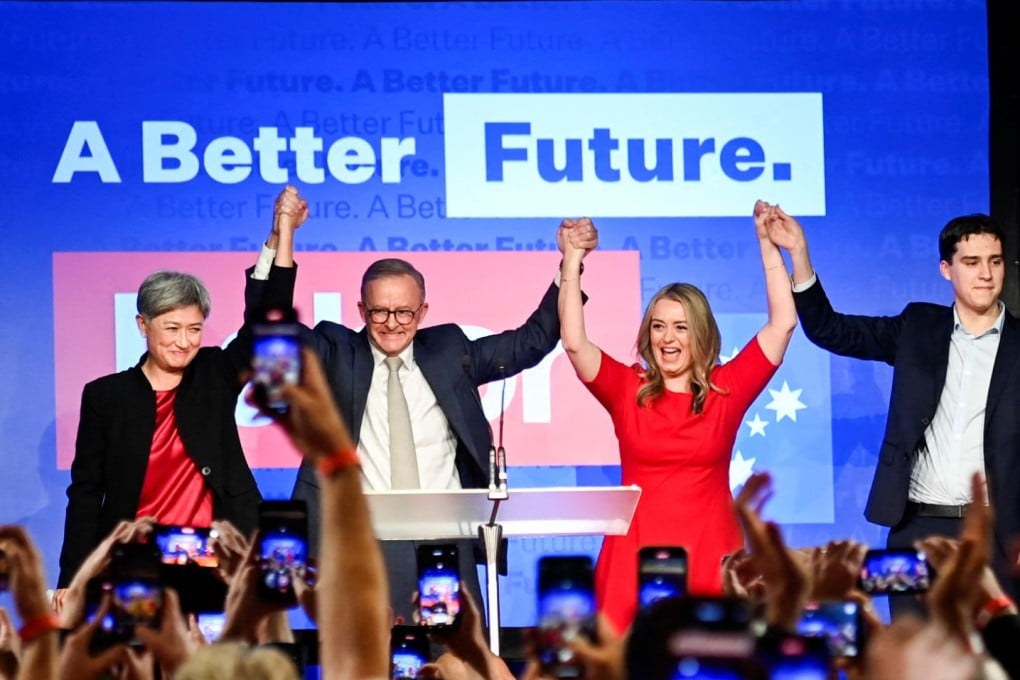Australia election: Labor seizes power, PM-elect Anthony Albanese vows to unite country
- With Scott Morrison conceding defeat, Labor Party leader Anthony Albanese said he hoped to unite Australians who ‘have had enough of division’
- The Australian Broadcasting Corporation said Labor won at least 72 seats in the 151-seat parliament, compared with 55 for Morrison’s Liberal-National Coalition

Australia’s Labor Party appeared set to take power for the first time since 2013 after the incumbent Liberal-National coalition led by Prime Minister Scott Morrison declared defeat in Saturday’s closely watched federal election.
The Labor Party, led by career politician Anthony Albanese, is on track to beat the coalition although its ability to form a majority government is uncertain, according to broadcasters. The large number of postal votes that have yet to be tallied and a strong showing by independent candidates added to the uncertainty, analysts said.
The knife-edge election heavily featured China, with Morrison accused by detractors of using Beijing as a bogeyman during campaigning to secure support from his conservative base.
On Saturday night, commentators suggested that tactic might have backfired, with the sizeable Chinese-Australian community likely to have swayed towards Labor in several seats seen as traditional Liberal Party safe havens.
At 10pm Hong Kong time, national broadcaster ABC projected that Labor had secured 72 seats compared to the Liberal-National coalition’s 55. Labor would need to win 76 seats to form a simple-majority government in the country’s 151-seat parliament. The Greens and a group of so-called “teal independents” appeared set to take 11 seats.
Albanese said in brief comments to reporters that he hoped to unite the country.